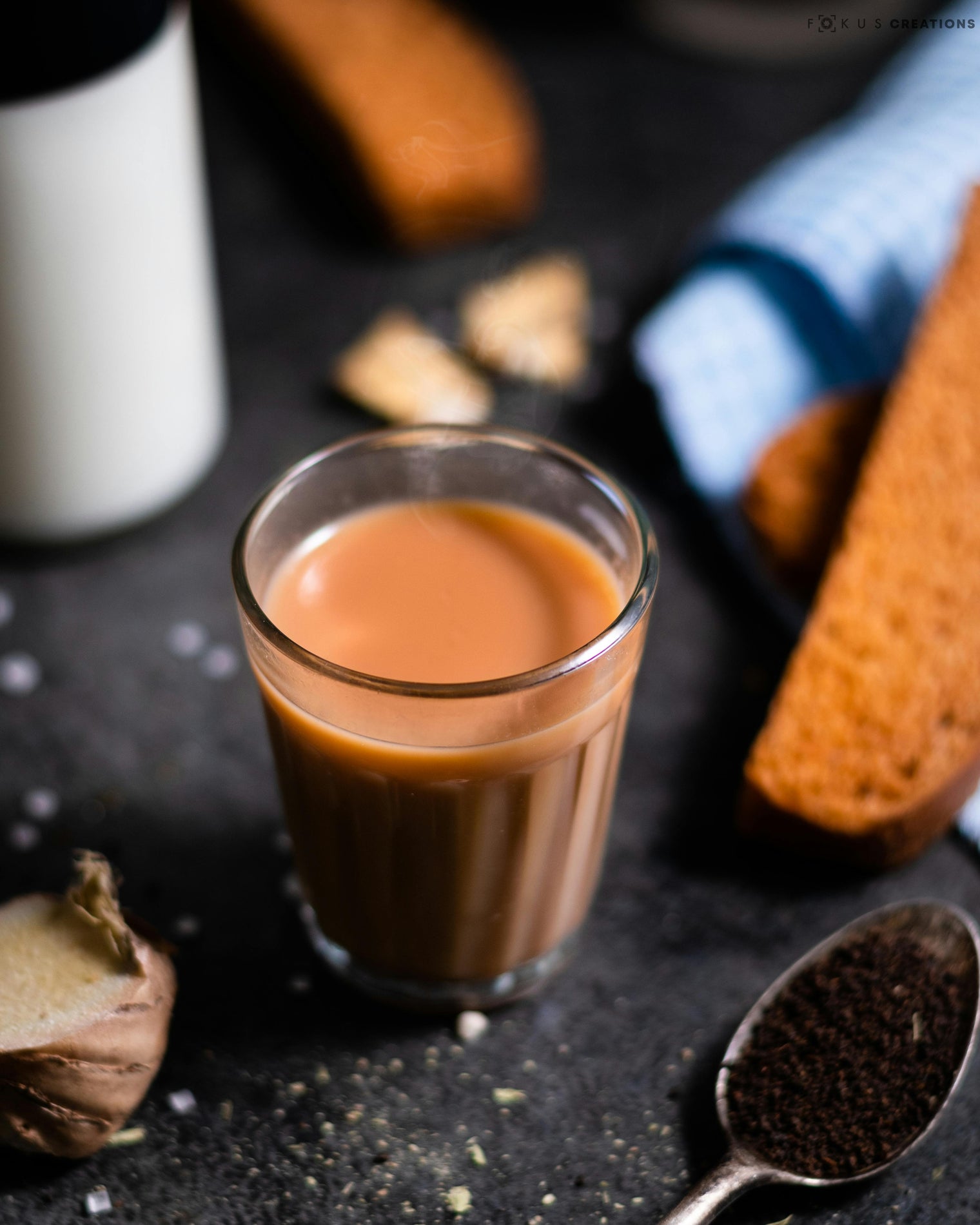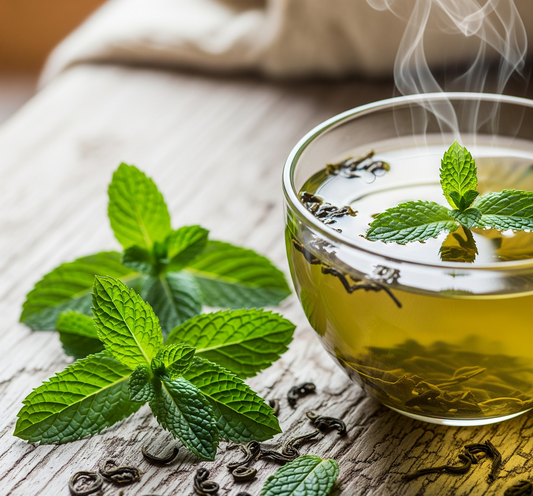Chai tea, or masala chai, is a globally cherished beverage known for its rich flavors and health benefits. This spiced black tea contains caffeine, typically ranging from 25-50 mg per 8-ounce serving, making it a milder alternative to coffee. Understanding the factors that influence its caffeine content can help you enjoy chai while managing your intake.
Chai tea, also known as masala chai, is a beloved beverage enjoyed the world over for its rich, spicy flavor and potential health benefits. But despite the popularity, even the most avid of tea-enthusiasts wonder "Does chai tea have caffeine?" and if it does, how does it compare to other popular drinks like coffee.
If you’re someone who is wondering the same thing, then you’ve come to the right place. Let's explore the caffeine levels in chai tea. And since we’re here, we’ll also provide some helpful tips if you’re looking to manage your caffeine intake.
Does Chai Tea Have Caffeine?
To get straight into it - Yes, chai tea does contain caffeine! However, the amount of caffeine in chai tea can vary depending on several different factors, including the type of black tea used, the brewing method, and the ratio of tea to spices. On average, an 8-ounce cup of chai tea may contain anywhere from 25-50 mg of caffeine.
For comparison, a typical 8-ounce cup of coffee contains around 95-165 mg of caffeine, while an 8-ounce cup of brewed black tea contains approximately 47 mg. This means that while chai tea does contain caffeine, it is generally less than a cup of coffee but more than an equal serving of regular black tea.
Furthermore, it's also important to note that the caffeine content in chai tea can also be influenced by the type of milk used and the addition of sweeteners. For example, a chai tea latte made with whole milk and sweeteners may have a slightly higher caffeine content than a chai tea made with water and no added ingredients.
Let's explore what chai tea is.
What is Chai Tea?

To put it simply, chai tea is a spiced black tea blend that typically includes a combination of black tea leaves, spices (such as cinnamon, cardamom, ginger, and cloves), and sometimes herbs. The tea is brewed with water and then mixed with milk and sweeteners to create a creamy, flavorful beverage. While the exact recipe can vary from place to place, the primary ingredient in chai tea is black tea, which is known for its caffeine content.
Let’s look into these factors in more detail!
Factors Affecting Caffeine Content in Chai Tea
There are several factors that influence the caffeine content in chai tea, including:
- Type of Tea: The type of black tea used in the chai blend can affect the caffeine levels. Stronger black tea varieties tend to have higher caffeine content compared to weaker black tea.
- Brewing Time: The longer you steep the tea, the more caffeine is extracted. So naturally steeping chai tea for longer periods can increase the caffeine concentration.
- Water Temperature: Hotter water extracts caffeine more effectively than cooler water. According to JavaPresse, brewing chai tea with boiling water can result in higher caffeine levels.
- Size of the Tea Leaves: Smaller, broken tea leaves (like those found in tea bags) tend to release caffeine more quickly compared to whole leaves.
- Chai Tea Concentrate: Chai tea concentrates, which are commonly used in coffee shops and cafes, and are also readily available at the store are steeped for longer periods and may have higher levels of caffeine than regular chai tea infusions.
You might also want to read: Does Tea Have Caffeine? Unraveling The Unbelievable Truth
Caffeine Sensitivity and Moderation
While chai tea is generally safe for most people when consumed in moderation, some individuals may be more sensitive to caffeine than others. Various factors like age, weight, and overall health can influence how your body reacts to caffeine.

The FDA recommends limiting caffeine intake to no more than 400 mg per day for adults. For those who are sensitive to caffeine or looking to reduce their intake, there are several strategies to enjoy chai tea without overdoing it:
- Opt for Smaller Serving Sizes: Choose a smaller cup (e.g., 8 ounces) or request a "half-and-half" or "light" chai tea latte to reduce the overall caffeine content.
- Explore Decaffeinated Options: Many of the top chai tea brands offer decaffeinated alternatives, allowing you to enjoy the flavor without the caffeine.
- Choose Herbal Chai Blends: Herbal chai teas are typically caffeine-free and can be a great alternative if you’re avoiding caffeine altogether.
- Adjust Brewing Practices: Reducing steeping time or using less tea leaves can help lower the caffeine content in your chai tea.
- Dilute with Milk or Water: Mixing chai tea with milk or water can reduce the overall caffeine concentration per serving.
If you’re looking for a non-caffeinated option, you can pick from a range of premium herbal teas from Nepal Tea Collective.
In conclusion, chai tea does contain caffeine, with an average of 25-50 mg per 8-ounce serving. While this is lower than the caffeine content in coffee, it's still important to be mindful of your intake, especially if you are sensitive to caffeine or looking to limit your consumption.
Understanding the factors that influence caffeine levels in chai tea and employing strategies like choosing smaller serving sizes, exploring decaffeinated options, and adjusting brewing practices, will greatly allow you to enjoy this delightful beverage while managing your caffeine intake.




